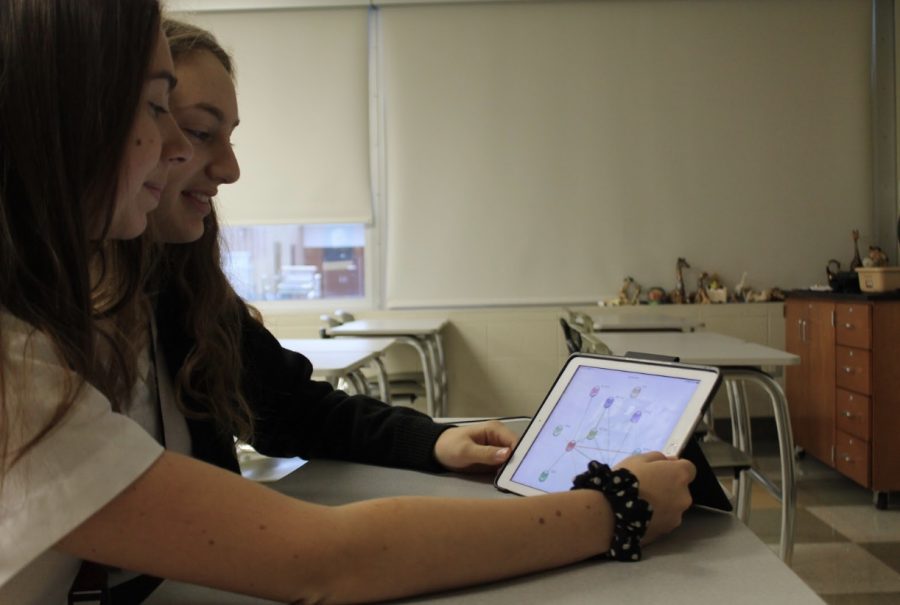4 juniors restart GIDAS club
Juniors Olivia Milosevich (front) and Isabella Morganti (back) do some research about gene structure. Photo by Megan Mallie
Genetic mysteries and patterns will be explored in Mercy’s newest club, GIDAS, which stands for Genes In Diseases And Symptoms, a newly-formed club this year created by four Mercy juniors who were inspired by a summer GIDAS camp they attended.
“The four of us went to a camp a couple years ago for GIDAS at U of M, and we are basically just bringing the camp here,” junior Isabella Morganti said. “There was someone who had this club about five years ago before we came to school here, but it kind of went away because there were no underclassmen to keep it going [after] the leader graduated. So we’re just bringing it back.”
Club leaders Olivia Milosevich, Isabella Morganti, Ava Rapp, and Sophia Tesic are restarting this club with Mercy’s new science department teacher, Mrs. Schmidt, as their moderator.
This club focuses on student exploration of genetics, and students are provided with an abundance of databases to conduct their research. They are also able to connect their findings with real-life conditions or scenarios. Every year has a new theme for research.
“Each year we have a different topic. This year is opioid addiction, and basically we look at the different genes and different parts of the genes, and we have access to all these different databases that have multiple scans of your whole genome,” said Rapp. “And you can look at each one and see how it affects your body and. . . how your different genes affect how susceptible you are to becoming an addict. We’re just finding out more in-depth about what opioid addiction is and how your genes affect it.
The first meeting will be November 14 and GIDAS will meet every other Thursday afterwards. These juniors are hopeful that this time GIDAS will stand the test of time as their club is mainly made up of freshmen and sophomores, underclassmen who will be able to keep the club going after the leaders have graduated.
“This club is very student-run and oriented,” said Rapp. “Everybody does their own research, and you can kind of be really independent with it. . . you can really take your own time and find out what you want to find out.”

